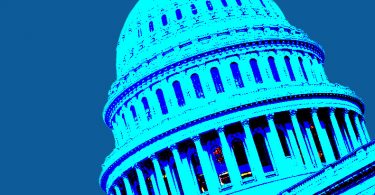Last week, the Supreme Court heard arguments on whether Obamacare exceeds the federal government’s power under the U.S. Constitution. In the 220-year history of the Republic, the federal government has never before forced citizens to buy a product.
That all changed with Obamacare. No federal law has ever before exercised such extravagant power over the individual choices of every man, woman and child. But the Patient Protection and Affordable Care Act of 2010, more commonly known as Obamacare, does exactly that.
Obamacare requires almost everyone living in the United States to purchase health insurance. The provision that does this is euphemistically called the “individual mandate.” The administration argues that a “compelling” federal interest in health care justifies this power grab.
Next up: compulsory purchase of broccoli and gym club memberships. After all, healthy eating and fitness directly affect the health of our citizenry and, with it, the cost of health care.
If the Constitution authorizes the federal government to compel every citizen to buy health insurance — whether they want it or not — the same logic would justify federally mandated veggies and exercise.
Violators of the individual mandate would pay a hefty financial penalty. This may sound like a tax, but Obama has adamantly insisted that the “penalty” is not a tax.
“For us to say you have to take responsibility to get health insurance is absolutely not a tax increase,” he said in 2009, while arguing for the law’s passage. “Nobody considers that a tax increase.”
Except the administration’s lawyers. Now that they are defending the law in court, they argue that Obamacare is constitutional precisely because it’s a tax increase.
Got that? It’s not a tax when you’re trying to sell the proposed legislation to the public. But when you need the law to survive a court challenge, well, of course it’s a tax.
Our founders designed our federal system to make it difficult to pass new laws. They did this to ensure that voters would hold lawmakers accountable.
This is especially so with taxes. “The power to tax involves the power to destroy,” Chief Justice John Marshall famously wrote.
The Obama administration wants to have it both ways. If you’re a voter, please don’t think of the individual mandate as a tax. If you’re a Supreme Court justice, of course it’s a tax!
This is nothing new. During the New Deal era, the Roosevelt administration faced a similar problem in getting the Social Security Act passed and upheld in court.
Roosevelt’s secretary of labor, Frances Perkins, could not figure out how to stretch the federal government’s power further than ever before. Then she got a hot tip at a D.C. cocktail party.
Perkins could not invent a constitutional basis for the massive expansion of federal power known as Social Security. Then she had an experience that, today, we would call a classic inside-the-Beltway moment.
On a social visit to Justice Harlan Stone’s house, Perkins chatted privately with him, lamenting her difficulties in finding a constitutional hook for the Social Security Act.
“We are having big troubles,” she said to Justice Stone. She was “not quite sure, you know,” how to keep the law from being overruled as unconstitutional.
Justice Stone “looked around to see if anyone was listening,” Perkins later recounted. Then he put his hand up, whispering confidentially, “The taxing power, my dear, the taxing power.” Then he added, “You can do anything under the taxing power.’”
“I didn’t question him any further,” Perkins said. “I went back to my committee and I never told them how I got my great information. As far as they knew, I went out into the wilderness and had a vision.”
Supreme Court justices are not permitted to give advisory opinions. The Constitution requires justices to decide actual cases and controversies. Moreover, the executive branch and judicial branch are supposed to be separate.
None of those pesky facts got in the way of Justice Stone’s legal advice to Secretary Perkins. That’s why Stone gave the advice confidentially, in a hushed whisper. That’s why Perkins never revealed her source until long after the Supreme Court had upheld the Social Security statute.
Later she would proudly proclaim, “Social Security is so firmly embedded in the American psychology today that no politician, no political party, no political group could possibly destroy this Act and still maintain our democratic system.”
That’s what happens after the Supreme Court upholds a massive entitlement program. It never goes away. It never can.
And that’s what is at stake now as the Supreme Court considers the validity of Obamacare. Does the federal government have this much power?
If not, the statute must fail. The federal government’s powers are “enumerated” — specifically listed — in the Constitution. The federal government can regulate commerce, but that has never before meant compelling citizens to purchase something or punishing inactivity — not purchasing insurance.
If the Court upholds Obamacare, we know from experience that the statute will never go away. No politician, no political party, no political group could possibly repeal it and still maintain our democratic system.
Frances Perkins taught us that.
First published on the Daily Caller in April 2012








